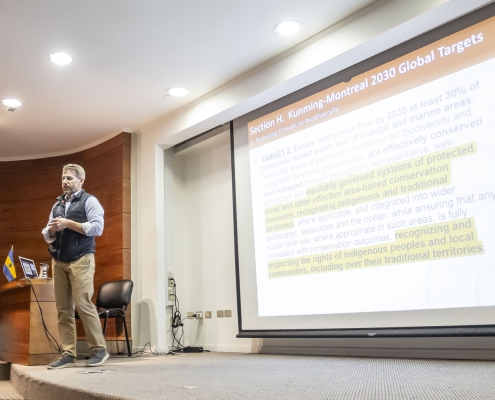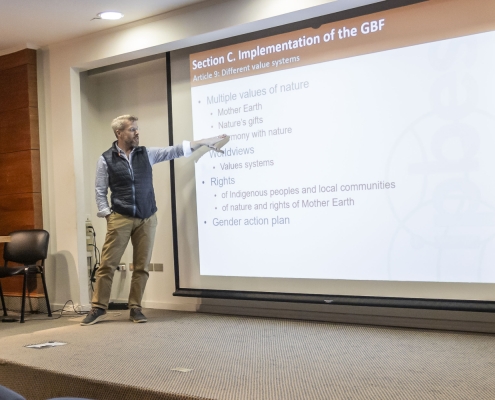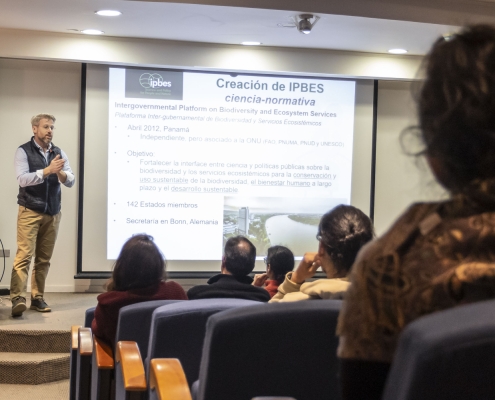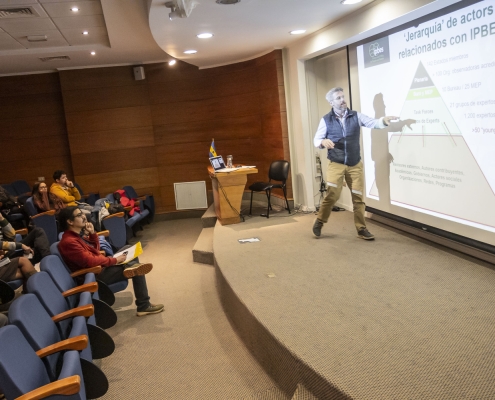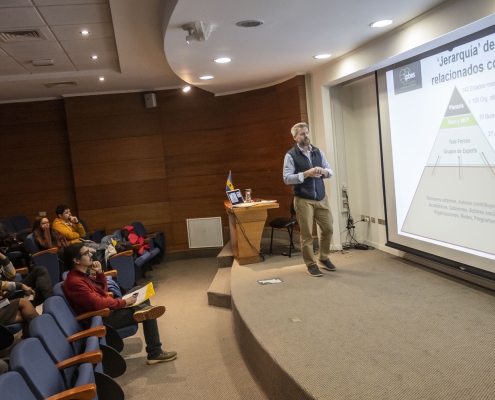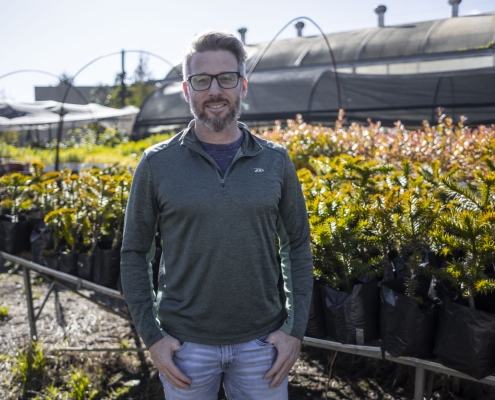The paradigm shift does not occur solely within the spheres of decision-makers at the national or international level.
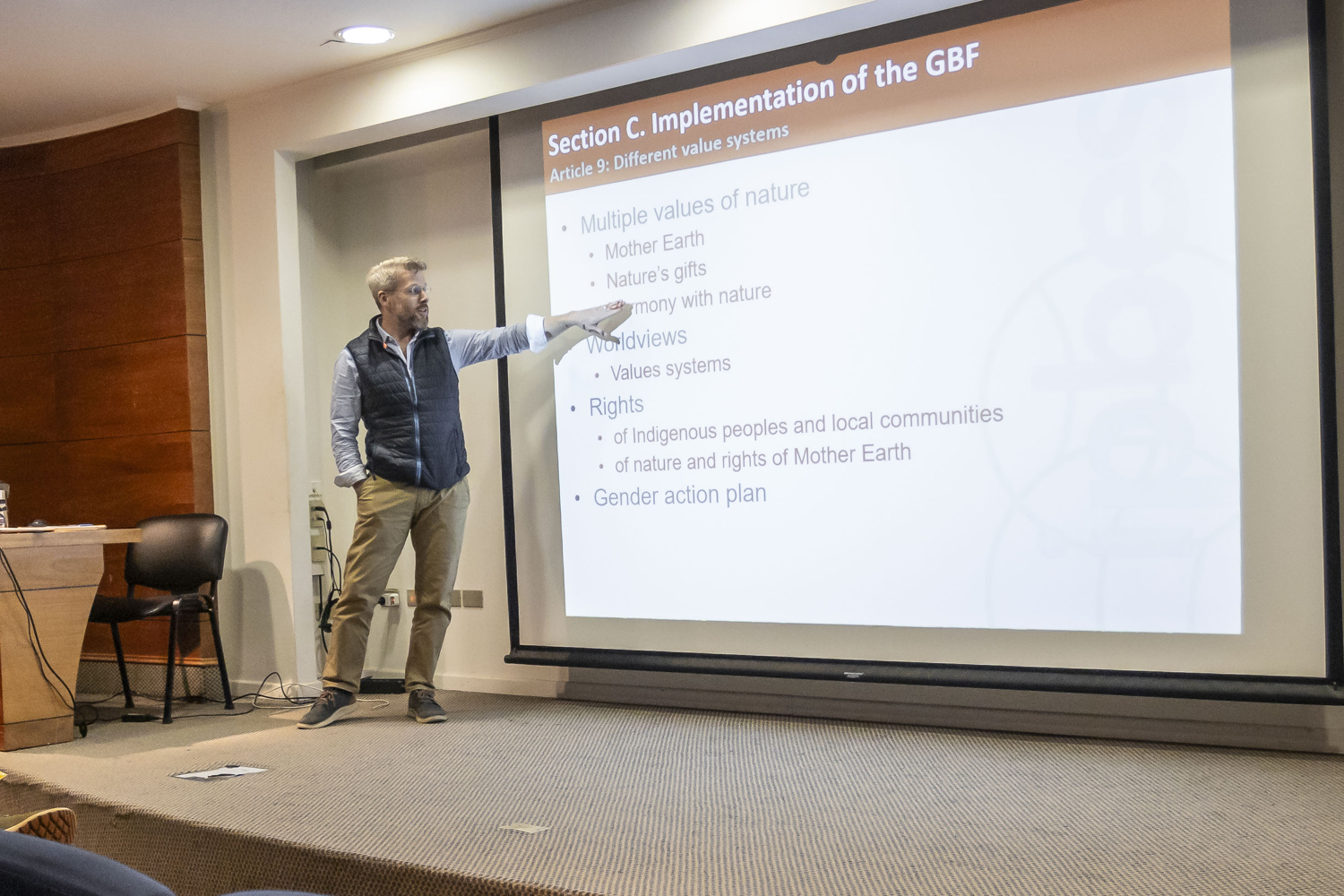
Christopher Anderson, IIBPES Associate Professor
“Las especies invasoras exóticas son uno de los cinco principales impulsores de la pérdida de biodiversidad”. La sentencia, hizo noticia hace unas semanas como parte del informe de la Plataforma Intergubernamental Científico-Normativa sobre Diversidad Ecológica y Servicios de los ecosistemas (IPBES).
IPBES is a multilateral institution formed by governments. It was established in 2012 to bring together countries interested in addressing the relationship between knowledge and regulations regarding biodiversity and ecosystem services. It is a platform that connects countries and their needs through reports and actions, synthesizing and accumulating information to make it accessible.
The Biologist and Doctor in Evolutionary Ecology, Christopher Anderson, is an associate of IPBES and 'comments that it was conceived as a platform to link science with decision-making, but in reality, it's knowledge, not just science. Science is a form of knowledge, and mechanisms have been rightly generated to value not only indigenous knowledge but also local knowledge, which encompasses ancestral practices and wisdom of their territories,' states the academic, who was invited within the framework of a Fondecy project led by Dr. Cristóbal Pizarro P., Deputy Director of the Campus Naturaleza Project at the University of Concepción and principal investigator at the Laboratory of Anthropocene Studies."
Paradigm shift
The flippers of a penguin are similar to those of a fish not because they share genetics, but because they solved the same problem in the same way; it's like evolution sometimes leads to the same solution through different lines." Convergent evolution is the concept Anderson uses to refer to how encouraging it is to identify the current paradigm shift occurring in different areas, one that integrates humans with the natural environment
This aspect hasn't always been this way. 'The paradigm shift is relatively new; even most of today's public conservation policies still conceive nature as something we have to protect but also exclude from humans. Even in a meeting a few years ago, the United States government, represented by the Trump administration, objected that when talking about biodiversity, social issues were also brought up, saying that social issues have nothing to do with it, why are we talking about social equity,' recalls the researcher from the National Scientific and Technical Research Council (CONICET) and the National University of Tierra del Fuego, both located in Ushuaia, Tierra del Fuego, Argentina.
After Your Arrival in Concepción, Do You Think the Campus Naturaleza Project Aligns with These New Paradigms You Mentioned Earlier?
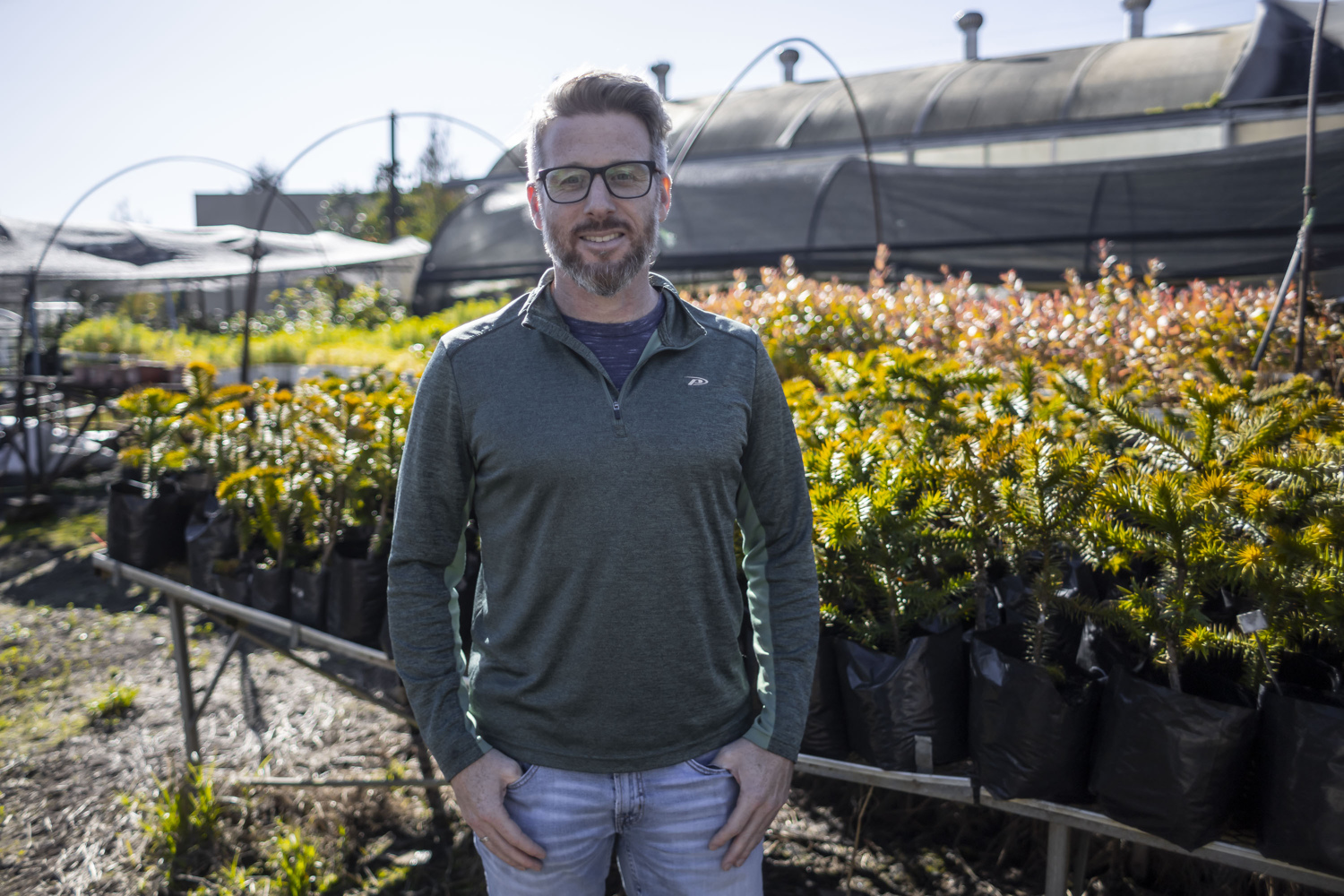
“"Yes, for me, it is totally consistent. In this case, it demonstrates that this paradigm shift is not just occurring among decision-makers at the national or international level, but also locally and not always for the same reasons. The integration of nature as part of the campus (Campus Patrimonial UdeC), as part of the city, or as part of health is a matter of unification that can be seen wherever one goes."
He adds, "It is a reconceptualization that nature is an aid to achieving goals and not a hindrance. And well, the same thing happens here. Wherever you go, you basically see this, and in all spheres, from economic to cultural; it is no longer just the simple vision of conservationists hugging trees, but knowledge that is being considered at all levels. For some, it is an economic matter, for others, health is increasingly relevant, or cultural vindication, but most importantly, decision-making is being democratized for different reasons."
Campus Naturaleza Universidad de Concepción is a unique initiative at the national level. In the current context of climate change, the project places nature as the compass of its actions.
The objective is the conservation of areas of high biodiversity value, where ecological restoration and scientific research actions will be carried out. In addition, in the future, the community will have a relevant role, participating in cultural, educational and recreational activities.

